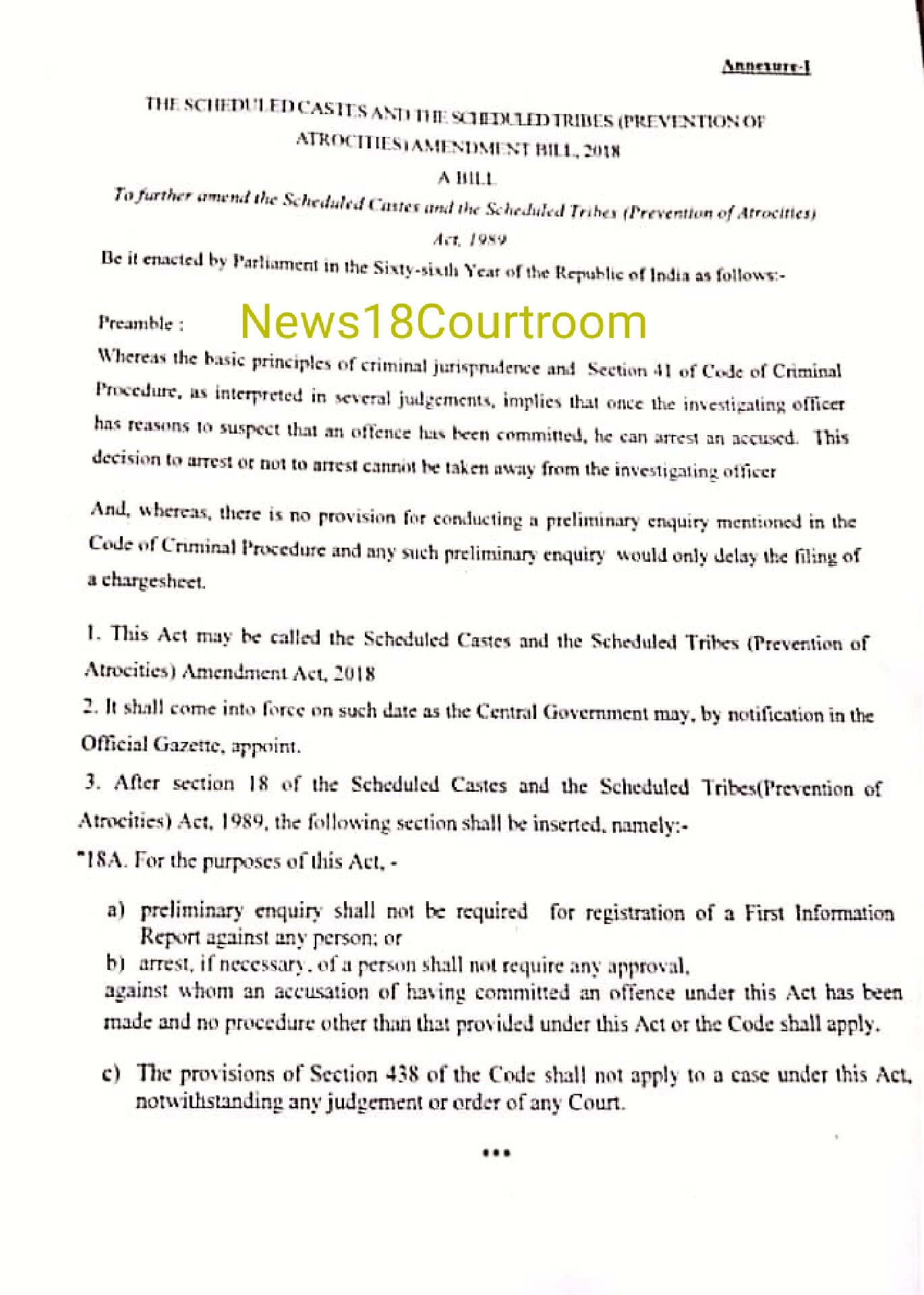
views
New Delhi: Post the Cabinet's approval, the Centre on Thursday will introduce a Bill to restore the original provisions of the Scheduled Castes and the Scheduled Tribes (Prevention of Atrocities) Act, 1989, which the Supreme Court had struck down in a March ruling.
In order to nullify the Supreme Court verdict in the SC/ST Act case, the Central government has proposed a new provision in the statute.
The amendment Bill, accessed exclusively by CNN-News18, seeks to insert Section 18A in the SC/ST (Prevention of Atrocities) Act.
Section 18A tends to override the apex court judgment in March, that has been in the eye of a storm over allegedly diluting the law to safeguard the marginalised sections in the society.
According to this new Section, there will not be any requirement to conduct a preliminary inquiry before an FIR is to be registered.
While the Supreme Court judgment provided for carrying out a preliminary inquiry, not exceeding seven days, to satisfy a police officer of the ingredient of the complaint before registering a formal FIR, the proposed provision presses for registration of the FIR straight away.

According to the Bill, any provision for conducting preliminary inquiry will delay the investigation and thus filing of the chargesheet.
The Supreme Court had also laid down that in cases of public servants, prior approval of the appointing authority shall be required to make arrest. For private individuals, a sanction from SSP was mandated by the Court.
But the new law seeks to do away with these directions of the Court, and says that "arrest, if necessary, of a person shall not require any approval".
The proposed Section also moves to invalidate another directive by the top court by which a provision for pre-arrest bail was sought to be introduced in the statute.
"The provision of Section 438 of the CrPC (anticipatory bail) shall not apply to a case under this Act, notwithstanding any judgment or any order of any court," stated the proposed law.
The objectives of the amendment Bill pointed out that the decision to arrest or not to arrest cannot be taken away from the investigating officer because the CrPC has given this authority to the officer, founded on basic principle of criminal jurisprudence.
The proposed Bill has already received the approval of the Cabinet and it is likely to be introduced in the ongoing session of the Parliament.



















Comments
0 comment